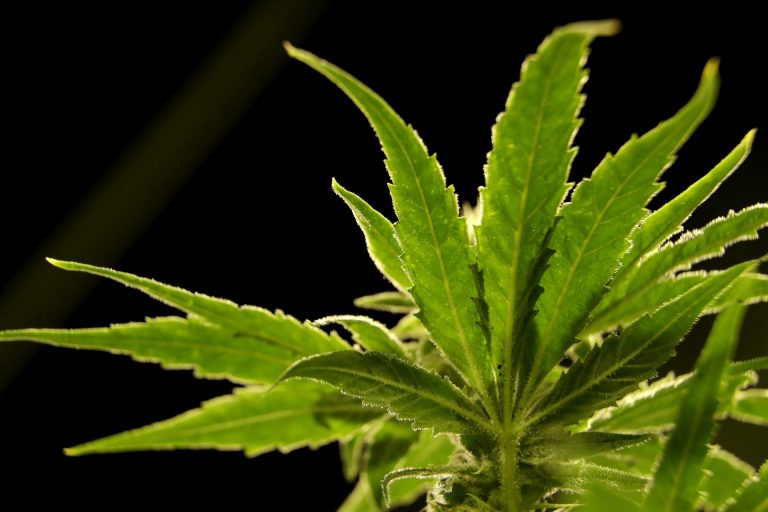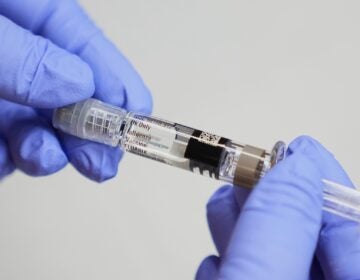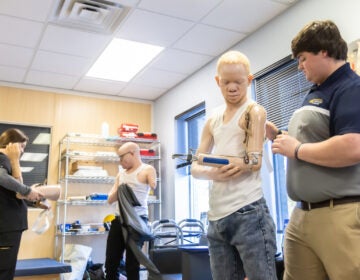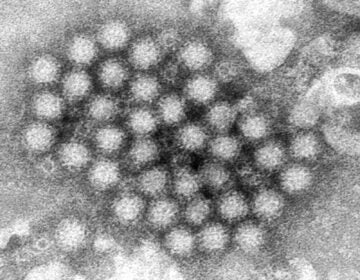Murphy signs ‘Jake’s Law’ to expand N.J. medical marijuana program
After failing to legalize marijuana this year, New Jersey is now aggressively expanding its medical marijuana program.

In this Friday, March 22, 2019, file photo, a marijuana plant is visible at Compassionate Care Foundation's medical marijuana dispensary in Egg Harbor Township, N.J. (Julio Cortez/AP Photo)
New Jersey Gov. Phil Murphy signed what is being called “Jake’s Law” on Tuesday in the latest major overhaul of the state’s medical marijuana program.
Advocates say changes in the law will benefit patients by increasing the availability of medical cannabis and reducing costs.
“This new law is a win for compassion, for leadership, and for the quality of life of every person that it benefits,” said Assemblywoman Joann Downey, D-Monmouth, “but also for every little girl and boy in the hospital right now, wondering when their pain will stop.”
The law is named after Jake Honig, a New Jersey boy who used medical marijuana to treat the symptoms of his brain cancer before dying last year at age 7.
“Jake was on medical cannabis and he would go to school, he would excel in sports, he would play video games, he’d spend quality time with his family and friends,” his father, Mike, said at the Tuesday bill signing. “You would never know that Jake was on medical cannabis because of the way we were able to administer his medicine.”
Under the law, New Jersey patients in the state’s medical marijuana program will be able to obtain more of the drug, and monthly limits will be lifted for terminally ill patients.
The state is expanding the list of medical conditions that qualify patients and phasing out the sales tax on medical marijuana over the next three years.
Murphy’s administration will also be able to increase the number of growers, manufacturers, and dispensaries it licenses. Right now patients must obtain their medical marijuana from only six treatment centers located throughout the state.
“Over the past several years, a lot of us have come to a new understanding of how medical marijuana can be used to help patients. With this knowledge, both minds and laws have been changed,” Gov. Murphy said. “Most importantly, sick people have been helped, pain has been eased, and precious moments with sick family members have been cherished.”
WHYY is your source for fact-based, in-depth journalism and information. As a nonprofit organization, we rely on financial support from readers like you. Please give today.




